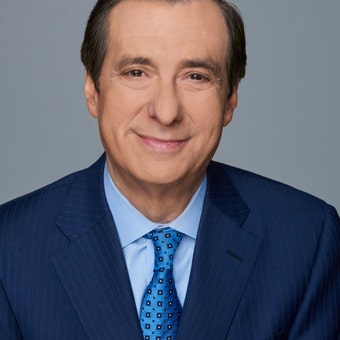Fox News Flash top headlines for December 15
Fox News Flash top headlines are here. Check out what's clicking on Foxnews.com.
William Barr may have chosen to resign, but it was clear that his relationship with President Trump had simply become untenable.
The attorney general has long drawn media criticism for appearing to do Trump’s political bidding, but in recent months he drew the line in two crucial respects. And that led to the same kind of criticism that his boss unleashed on Jeff Sessions, essentially that he was insufficiently loyal.
Barr complained months ago, when he intervened in the Roger Stone sentencing, that Trump’s tweets were making it “impossible” for him to do his job. That was a flashing neon light.
CLICK HERE TO GET THE FOX NEWS APP
The writing was on the wall when Barr said in that AP interview that the Justice Department had found no evidence of widespread election fraud, undermining the claims that Trump was failing to prove in court. As media reports mounted that Trump might fire his AG, Barr’s circle leaked word that he was considering resigning.
But what sealed the deal was the Wall Street Journal report that Barr had said nothing publicly about the federal tax investigation of Hunter Biden, drawing public blasts from the president. Barr did the right thing, following DOJ rules against disclosing ongoing criminal probes, but Trump, who has never quite accepted the need for the department’s independence, was furious. And Barr may have wanted to avoid being buried under a coming avalanche of pardons.
Now that the Electoral College has formally certified Joe Biden as the winner, even Vladimir Putin and Mitch McConnell have recognized him as president-elect. “The soul of American democracy has prevailed,” Biden said in a speech that included several hard shots at Trump’s tactics. The whole thing felt like a do-over, since Biden’s original victory speech more than a month ago was so clouded by Trump’s insistence that the election was rigged.
The press is mounting a do-over of its own, and a look at the New York Times op-ed lineup yesterday shows a range of opinion from A to B--that is, from anti-Trump conservatives to anti-Trump liberals. I’m not saying anyone needs to publish a fantasy piece on how the president could still win the election. But one of the hallmarks of the last four years has been the eagerness of such outlets as the Times and MSNBC to showcase NeverTrumpers, but not the far broader ranks of conservatives who support the president.
Conservative columnist Bret Stephens ticked off a list of failed predictions: “The stock market would never recover. We’d stumble into war with North Korea or Iran. The free press would be muzzled. Vladimir Putin would rule Donald Trump through blackmail. Trump-appointed judges would dismantle the rule of law and overturn the verdict of elections. Trump would never leave office.”
Far worse, in Stephens’ view, is “the invisible damage. Trump was a corrosive. What he mainly corroded was social trust — the most important element in any successful society. But it’s hard to think of any person in my lifetime who so perfectly epitomizes the politics of distrust, or one who so aggressively promotes it.”
Conservative columnist Ross Douthat praised the Resistance, saying “the Trump administration was successfully undermined — the Trump agenda thwarted and Donald Trump himself defeated — by liberal institutions that refused to normalize him, maintained a persistent alarm about his presidency and took every opportunity to obstruct, investigate, protest and impeach.”
Then there’s liberal columnist Michelle Goldberg, who poses the question: “Just how fascist was Trump?”
Goldberg says the damage he caused is “irreversible” and that “Trump’s ability to envelop his followers in a cocoon of lies is unparalleled. The Bush administration deceived the country to go to war in Iraq. It did not insist, after the invasion, that weapons of mass destruction had been found when they obviously were not...Trump failed to capture America, but he may have irrevocably broken it.”
Wouldn’t this avalanche of op-ed opprobrium be a tad more interesting if there was someone to present the other side? As in, yes, Trump made plenty of mistakes but he also accomplished some good things. As in, there was no shortage of lies, exaggerations and hatred on the left. But ideological diversity no longer seems to be valued at a paper that fired its editorial page editor for approving an opinion piece by Republican senator Tom Cotton.
And it’s not just the Times. At the Washington Post, conservative Michael Gerson yesterday denounced the GOP, saying “the intellectual bankruptcy and moral hypocrisy of many conservative leaders is stunning. People who claimed to favor limited government now applaud Trump’s use of the executive branch to undermine an election. A similar attempt by Barack Obama would have brought comparisons to Fidel Castro…People who talked of honoring the rule of law now jerk and gyrate according to the whims of a lawless leader...This is not just a failure in judgment; it indicates an absence of character.”
SUBSCRIBE TO HOWIE'S MEDIA BUZZMETER PODCAST, A RIFF OF THE DAY'S HOTTEST STORIES
The conservatives who are vying to paint Trump and his followers as an evil force now face a difficult choice. They obviously wanted Biden to win because, well, he wasn’t Trump. They portray themselves as the keeper of the conservative flame because Donald Trump admittedly was never a small-government true believer.
But do they now root for Biden, who ran on a quite liberal platform, if not the revolutionary one prized by left-wing Democrats? Do they oppose him on domestic and foreign policy issues when he goes too far for their political taste, even if it helps damage his presidency?
Or do they rationalize and compromise because they want the man they abandoned their party to embrace to be successful?
I’d love to see a wide-ranging, truly honest debate over that.


